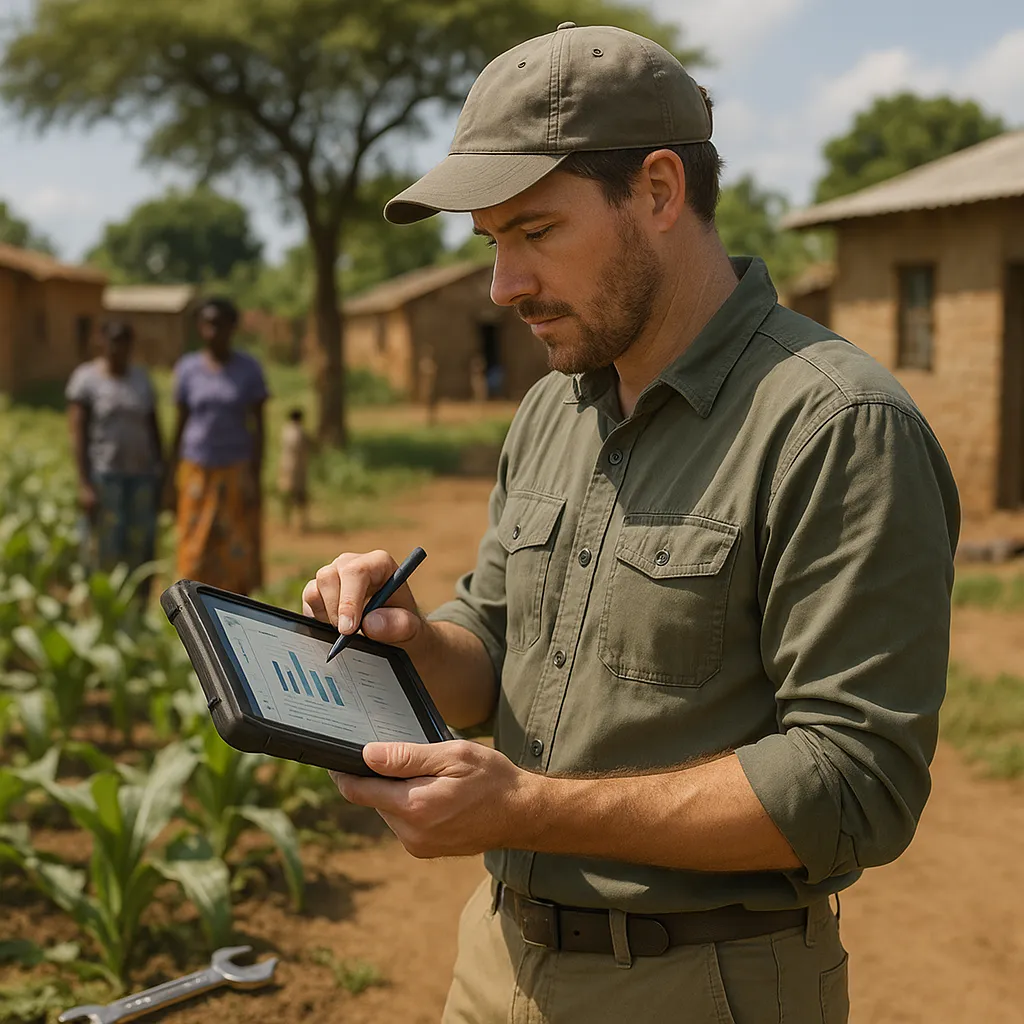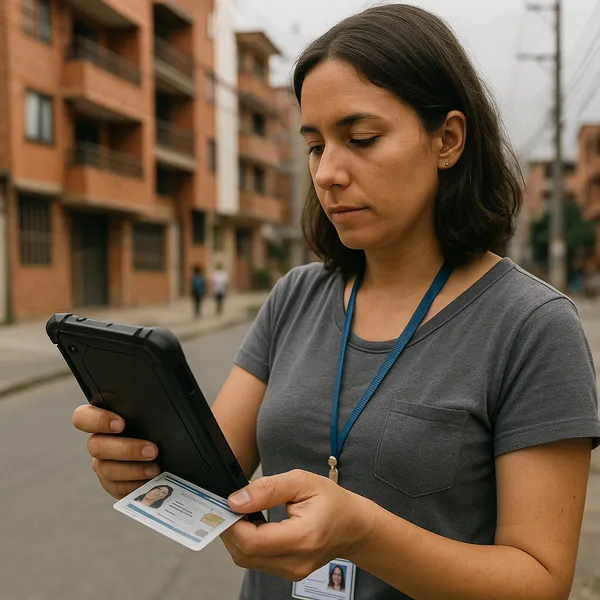Digital Transformation in Field Enumeration and Verification
Published on: Wed Jun 25 2025 by Ivar Strand
1. Introduction: The Persistent Challenge of Field Data Integrity
The quality of evidence-based decision-making in development and post-conflict programming depends directly on the quality of the underlying field data. For decades, the standard for collecting this data has been the paper-based survey. This traditional method, however, has systemic weaknesses that are well understood: it is slow, logistically burdensome, and highly susceptible to human error during both collection and transcription.
The key challenge is the significant time lag between data collection and data analysis. In fast-moving projects, this delay can render findings obsolete before they are able to inform programmatic adjustments. The integrity of the data itself is also a primary concern, with paper forms offering few safeguards against mistakes or inconsistencies.
In this paper, we discuss the shift to digital data collection using mobile tools. This is not merely a technological upgrade; it represents a more rigorous and efficient methodology for conducting fieldwork.
2. A Superior Method: The Principles of Digital Data Collection
Digital data collection, often referred to as Computer-Assisted Personal Interviewing (CAPI), involves using mobile devices like smartphones or tablets to administer surveys. Open-source platforms such as Open Data Kit (ODK) and its derivatives have made this technology widely accessible and highly customizable.
A fundamental idea is that CAPI is more than just a digital version of a paper form. It is an active instrument that improves data quality at the point of capture. The survey itself is programmed with a set of rules and logic that guides the enumerator, validates responses in real time, and automates the flow of the interview. This moves the process of data cleaning from a post-collection afterthought to an integrated part of the collection itself.
3. Key Advantages of Mobile Data Collection
The transition from paper to digital methods yields clear and demonstrable benefits. In our work at Abyrint, we have found the advantages to be concentrated in four main areas.
-
Enhanced Data Quality Digital forms can be programmed with constraints and validation rules. For example, an entry for a person’s age cannot be a negative number, and responses can be limited to a set of pre-defined choices. This eliminates an entire class of input errors. Furthermore, automated “skip logic” ensures that enumerators ask only the relevant questions based on previous answers, preventing contradictory or incomplete questionnaires.
-
Real-Time Data Availability Once an interview is complete, the data can be uploaded to a central server almost instantaneously, provided there is a network connection. This allows project managers to monitor incoming data in real time through dashboards, track enumerator progress, and spot systemic issues as they emerge—not weeks later. This closes the disruptive gap between fieldwork and analysis.
-
Improved Operational Efficiency The most resource-intensive phase of paper-based surveys is often the manual transcription of data into a digital format. CAPI entirely eliminates this step, saving significant time and removing a primary source of error. The logistical costs of printing, shipping, and securely storing thousands of paper forms are also rendered moot.
-
Richer Data Types and Metadata Mobile devices can capture a much wider range of data than paper. A survey response can be automatically tagged with GPS coordinates, providing geographic verification of the interview location. Enumerators can capture photographic evidence of a project site or asset. Audio recordings can be used for quality control checks on the interview itself. This embedded metadata provides powerful layers of context and verification.
4. Implementation Considerations
While the advantages are substantial, a successful transition to digital collection requires a professional and structured approach. It is not a simple matter of handing devices to a field team. Key considerations include:
- Instrument Design: The digital survey must be meticulously programmed and rigorously tested before deployment to ensure all logic, validation rules, and languages function correctly.
- Enumerator Training: Field staff must be trained not only on the content of the survey but also on the use of the device, best practices for battery management, and basic troubleshooting in the field.
- Data Security: A clear protocol for data security is required, including secure server hosting, encrypted data transmission, and policies for managing personally identifiable information.
These are not barriers to adoption but are manageable components of a well-planned fieldwork operation.
5. A New Standard for Field Research
Mobile data collection is no longer a novel innovation; it is rapidly becoming the professional standard for any organization serious about data quality and operational efficiency. The improvements in accuracy, speed, and analytical potential are too significant to be viewed as merely incremental.
For projects that depend on timely and reliable information to guide their work, embracing digital collection tools is a prerequisite for success. It equips managers and researchers with the high-quality, real-time data needed to navigate complex environments effectively.



